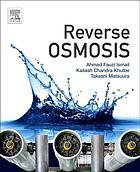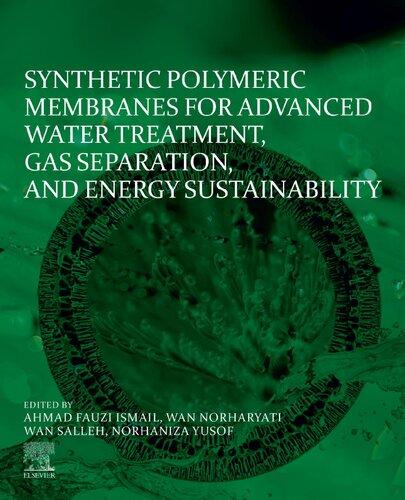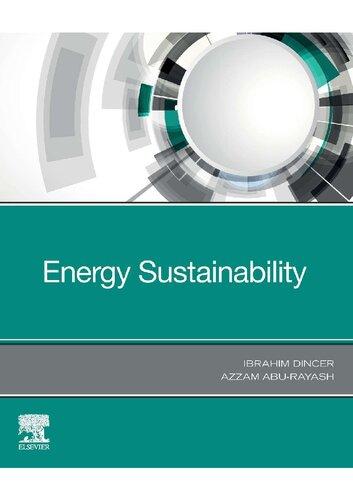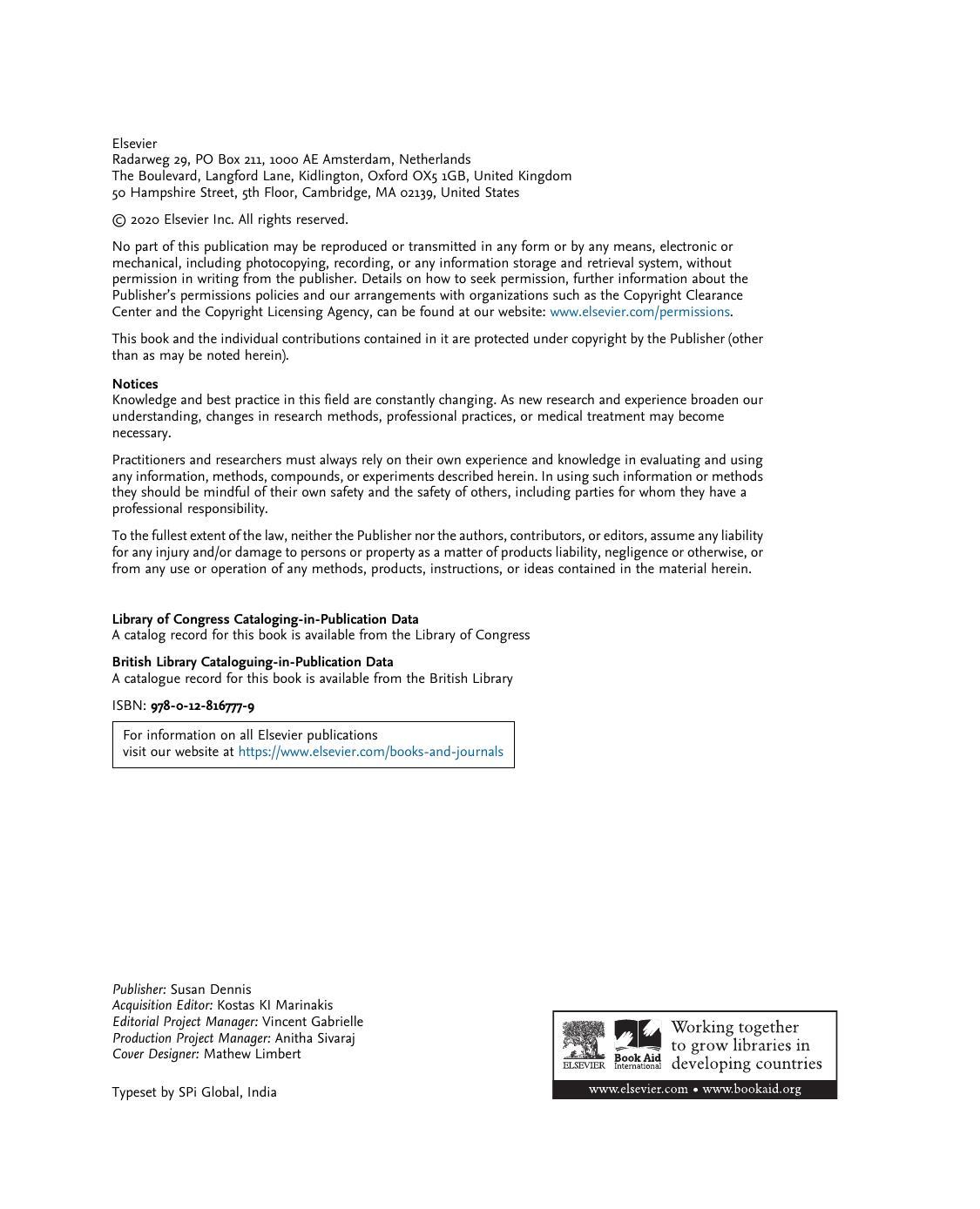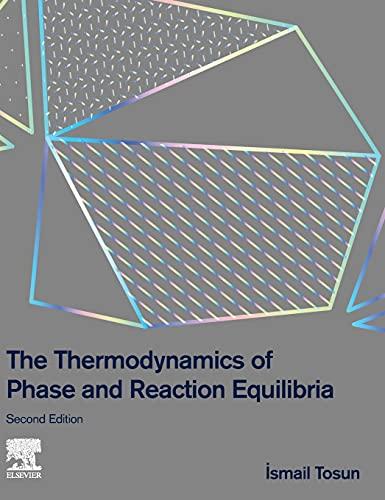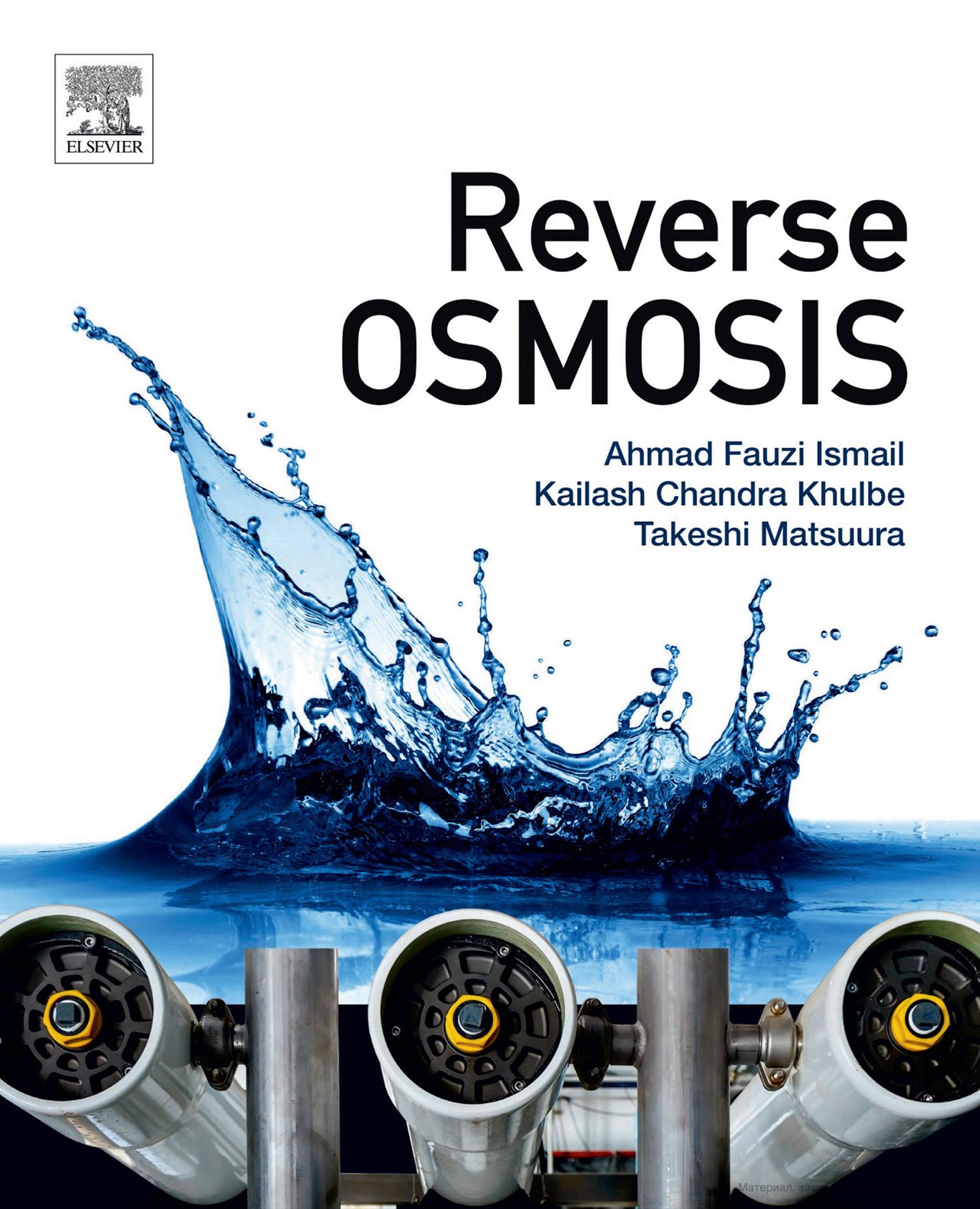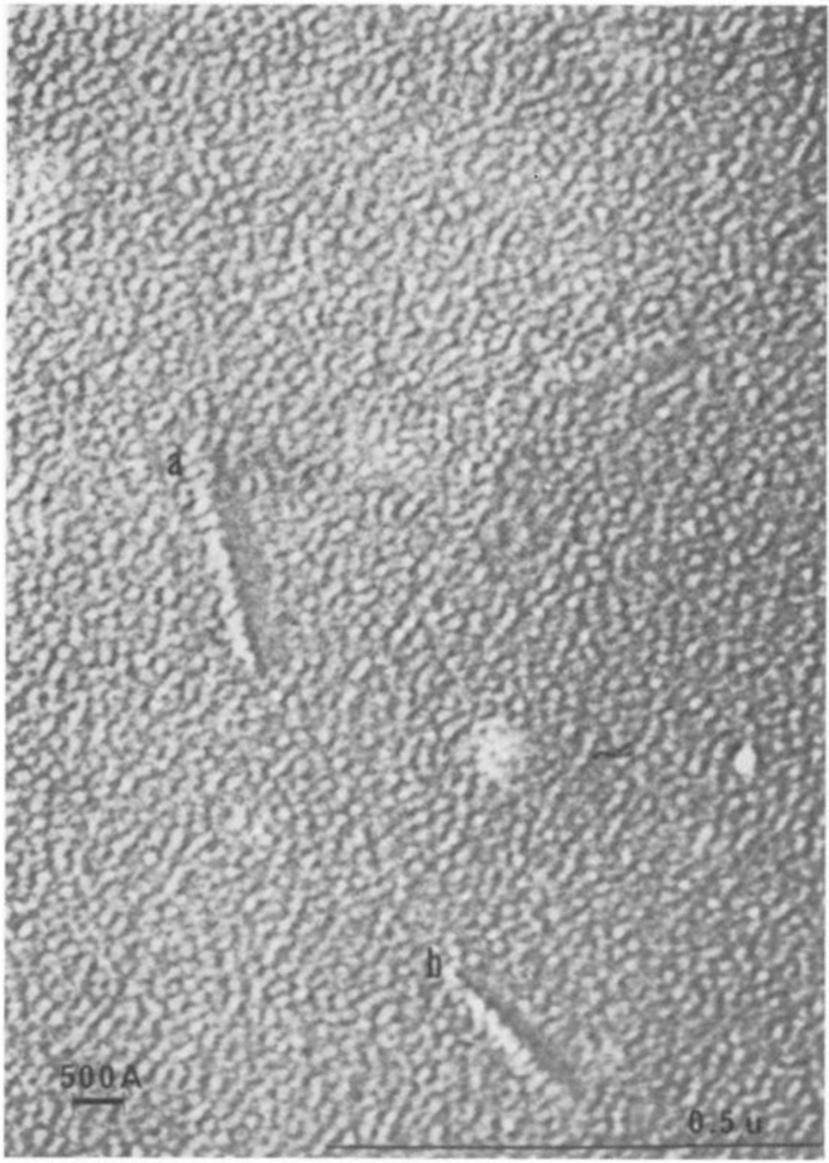Introduction —DoROMembranes HavePores?
ACRONYM
AFM atomicforcemicroscopy
CA celluloseacetate
DMSO dimethylsulfoxide
FO forwardosmosis
MD moleculardynamics
MF microfiltration
MPD metaphenylenediamine
NF nanofiltration
PA polyamide
PALS positronannihilationspectroscopy
PRO pressureretardedosmosis
PS-CF preferentialsorption-capillaryflow
RO reverseosmosis
SANS small-angleneutronscattering
S-D model:solution-diffusionmodel
SEM scanningelectronmicroscope
SWCNTs singlewalledcarbonnanotubes
TFC thinfilmcomposite
TMC trimesoylchloride
UF ultrafiltration
Whenoneofthecoauthors(TM)arrivedatDr.Sourirajan’slaboratoryatthe NationalResearchCouncilofCanadainOctober1968,Dr.Sourirajangave himamanuscriptofthebook“ReverseOsmosis,”whichwaslaterpublished in1970 [1].Hereadthebookeagerlyandwasespeciallyfascinatedby thechapter,whereSourirajanwrotehowhehadlaunchedhisreverse
☆Thischapterwastakenfromthepaper“Progressintransporttheoryandcharacterization methodofreverseosmosis(RO)membraneinthelast50years,desalination,available onlineSeptember30,2017”.
ReverseOsmosis. https://doi.org/10.1016/B978-0-12-811468-1.00001-3
# 2019ElsevierInc.Allrightsreserved. 1
osmosis(RO)research.Accordingtothebook,theinventionoftheLoebSourirajanROmembraneforseawaterdesalinationwasmadeonthebasisof thePreferentialSorption-CapillaryFlow(PS-CF)model.Asthenameofthe modelimplies,poresarerequiredforthetransportofwaterthroughtheRO membrane.
Inthe1960s,thesolution-diffusionmodel(S-Dmodel)waspresentedby Lonsdale [2] anditsoonbecamethemainstreamoftheROtransportmodel. SinceLonsdaleregardedtheporesasthedefectsofthenonporoussemipermeablemembrane,S-Dmodelhasbeenusedforalongtimetojustify thenonexistenceofporesintheperfectdenselayeroftheROmembrane. Itshould,however,bepointedoutthattheS-Dmodelisneutralonthisissue anddoesnotsayanythingaboutthepresenceortheabsenceofpores. Itmightalsobenoteworthytomentionthatmanyresearchersseemedto believethepresenceofporesintheROmembranedeepintheirmind. Oneofthecoauthors(TM)rememberstheGordonConferenceheldin the1980swheremanyheateddiscussionswereexchangedonthepresence ortheabsenceofporesintheROmembrane.Inoneoftheconferences W.Pusch,MaxPlanckInstitute,Germany,askedtheconferenceparticipantsiftheywerepore-philicorpore-phobic.Tomysurprise,morethanhalf raisedtheirhandstoshowthattheywerepore-philic.
InSourirajan’slaboratory,attemptswerecontinuedtointerprettheexperimentaldatabasedontheporemodel,whicheventuallyledtotheconcept ofthebimodalporesizedistributioncomprisingthe“networkpore”and “aggregatepore” [3,4].However,whenthebimodaldistributionwasproposedin1984,itwasalmostcompletelyignoredbythemembranecommunity,evidencedbyveryfewcitationsthepaperreceived.Computerdidnot countthenumberofcitationsthosedaysbutwecouldfeelhowunpopular thetheorywas.
Inthemeantime,themembranecharacterizationtechniquesweremaking remarkableprogress.Inthe1960sand1970s,theonlycharacterizationtool wasscanningelectronmicroscope(SEM)thatdidnotallowtheresolution below10nmwhenthepolymericmembranesurfacewasinvestigated. Needlesstosaythatitwasimpossibletoobservethesub-nanometerpores atthemembranesurfaceand,therefore,thetopskinlayerwasgenerally thoughttobedenseandhomogeneous.
In1994,apaperonthecharacterizationofcelluloseacetate(CA)ROmembranesbysmall-angleneutronscattering(SANS)appearedallofasudden. InthepaperS.Krause,RensselaerPolytechnicInstitute,Troy,NewYork, concludedthatSANSdatacouldbeexplainedbythebimodaldistributionof poresinthedenseskinlayerofCAROmembrane.
AstheindustrialmembranefabricationmethodshiftedfromthephaseinversiontechniqueofCAmembranetothin-filmcomposite(TFC)polyamide membrane,sodidthemembranesastheobjectofmembranecharacterization.NowadaysmostofthecharacterizationmethodsareappliedtoTFC polyamidemembranes.
Particularly,positronannihilationspectroscopy(PALS)gainedpopularity inthebeginningofthemillenniumtocharacterizethesyntheticpolymeric membranesforvariousapplications.InthePALSpaperstheterm“free volumes”isoftenusedinsteadof“pores.”Butirrespectiveofthechosen term,themeasuredsizeisindicativeofthechannelthroughwhichthematerialtransportoccurs.Kwak’sgroupatSeoulNationalUniversitycharacterizedthepolyamideTFCmembranebyPALSandconcludedthatthe bimodalporesizedistributionwasobserved,assigningthesedistinctive groupsoftheporestothe“network”and“aggregate”pores.
Atalmostthesametimeprogresswasalsomadeinthemembranetransport theory.Insteadofinterpretingtheexperimentaldataofmembraneperformancebyasetofsimpletransportequations,itismorefashionablenowadaystousethemoleculardynamics(MD),bywhichthestructureofthe polymericmembraneandthematerialtransportthroughthemembraneis simulatedbyusingasetofcomputersoftware.Itisparticularlyinteresting tonotethatmanyoftheMDsimulationhaveresultedinthepolymeric membranestructurewithbi-ormultimodalporesizedistributions.
BoththecharacterizationandMDsimulation,inwhichsophisticatedinstrumentorcomputersoftware,respectively,isused,describethemembrane structureandthemembranetransportverymuchindetail.However,they havenotnecessarilyofferedaclearguidelinetoimprovethemembrane performance.Inthisrespect,apaperrecentlypublishedbyArakietal.is interestingasitshowsthedisappearanceofaggregateporesinthenanocompositeTFCmembraneinwhichsingle-walledcarbonnanotubes(SWCNTs) areincorporated.
InthischaptertheprogressmadeintheunderstandingoftheROmembrane structureandtheROmembranetransportisreviewedinhistoricalperspective.
1.1 RESEARCHBEFORE2000
1.1.1 PreferentialSorption-CapillaryFlow (PS-CF)model
AccordingtoSourirajan’sbook,thefollowingfundamentalequationcalled theGibbsadsorptionisotherm [1] wasthebasisfortheearliestdevelopment ofROmembraneattheUniversityofCaliforniaLosAngeles(UCLA).
Table1.1 TheThicknessofPureWaterLayerattheAir/Sodium ChlorideSolutionInterface [5]
Sizeofwatermolecule ¼ ca0.1nm.
where Γ isthesurfaceexcess, R theuniversalgasconstant, T theabsolute temperature, σ thesurfacetension,and a istheactivity.
Theequationpredictsthepresenceofaverythinpurewaterlayeratthesurfaceofsalinewater. Table1.1 summarizesthethicknessofpurewaterlayer attheair/aqueoussodiumchlorideinterfacecalculatedbyEq. (1.1),assumingastepfunctionforthesaltconcentrationvsthedistancefromtheinterface [5].Thetableshowsthatthethicknessrangesfrom0.24to0.56nm, dependingontheconcentrationofsodiumchloride.
Prof.Yusterchallengedforthefirsttimetoskimthepuresurfacewaterlayer mechanicallybutfailed.Believinginthepresenceofpurewaterlayeratthe interface,Sourirajancontinuedthechallengebutbyadifferentapproach. Sourirajantriedtocollectthepurewaterlayerthroughamembraneunder pressureappliedonthesalinewater.Sourirajan’sattemptwasrewardedby animmediatesuccess.Hewasabletocollectdesalinatedwaterasthepermeateofthemembrane!Aftertheinitialfewattemptswithcelluloseand silicone-coatedcellulosemembranes,acommercialCAmembranefrom Sartoriuswasused,whichresultedinahighsaltrejection,enablingdrinking waterproductionfromseawater.However,thefluxofwaterwasmiserably low,withfewdropsofpermeatecollectedinaday,andthemembranewas thoughttobepracticallyuseless.ItisnoteworthythatReidandBreton obtained,quiteindependently,similarexperimentalresultsofseawater desalinationbyusingaCAmembraneattheUniversityofFlorida [6].It tookanother4yearsforLoebandSourirajantodeveloptheCAmembranes withfluxesofpracticalusefulness,whichopeneduptheavenuetothenovel membranedesalinationprocess,calledRO.
AccordingtothePS-CFmodel,desalinationbyROmembraneoccursinthe followingway:whensaltywater,forexample,sodiumchloridesolution,is
Preferential sorption-capillary flow model
Pore (r > ti)
Pore (r = ti)
n FIG.1.1 PS-CFmodel.
incontactwiththesurfaceofamembrane,aninterfacialpurewaterlayeris formedatthesolution/membraneinterface.Assumingananalogybetween thesodiumchloridesolution/airinterfaceandthesodiumchloridesolution/ membraneinterface,thethicknessofthepurewaterlayer, ti,shouldbeas lowasafractionofnanometer.Inthepresenceofapore,thediameterof whichissmallerthanorequalto2ti,thepurewaterlayerwillflowthrough theporeunderthepressureappliedonthesodiumchloridesolutionand appearontheothersideofthemembraneaspermeate(see Fig.1.1).If theporesizeislargerthan2ti,thesodiumchloridesolutionwillflowthrough thecenterofthepore,whichleadstotheleakageofsodiumchlorideintothe permeate.
Onthebasisoftheabovemodel,anappropriatechemicalpropertyofthe membranesurfacethatallowstheformationofthepurewaterlayeratthe membrane/solutioninterface,aswellasthepresenceoftheporesofappropriatesizesatthemembranesurface,constitutetheindispensabletwin requirementsforthedesalinationofsaltywater.
1.2 ROTRANSPORTMECHANISMS
SeveralROtransportmechanismswereproposed,asdiscussedextensively byMerten [7–9] atalmostthesametimeasthePS-CFmodelwaspresented. Letusnowlookintosomeofthem.
AccordingtoReidandBreton [6,10,11],themasstransportthroughtheCA membraneiscausedbytwomechanisms:(1)themoleculeswhichcanassociatewiththemembranethroughhydrogenbonding,thatis,water,combine withthemembraneandaretransportedthroughitbyalignment-typediffusion;(2)thosewhichcannotenterintohydrogenbondingwiththemembrane,thatis,salts,aretransportedbyhole-typediffusion.Consequently,
Membrane
Seawater
accordingtotheirmechanism,thepresenceofholes(pores)inthe membranecontributestotheleakageofthesaltthroughthemembrane andhenceshouldbeavoided.
Thesolution(sorption)-diffusion(S-D)mechanism,whichwasfavoredby Lonsdaleetal. [2,12–15], iscurrentlythemostbroadlyacceptedmechanism.AccordingtotheS-Dmodel,bothwaterandsaltaresorbedinthe membraneatoneside,diffusethroughthemembraneanddesorbedat theotherside.Bothsorptionanddiffusioncoefficientsarethevaluesunique forthemembranematerialwhentheyarecompletelynonporousandperfect [2,12–15].Anyimperfectnessthatarisesduetothepresenceofporeswill causetheleakageofthesaltandshouldbeavoided.
BanksandSharples [16–18] alsoconsideredthatthemechanismofROwas oneofdiffusiveflowthroughthepore-freelayeronthemembranesurface.
AccordingtoMichaelsetal. [19], watertransportinROmembraneoccurs bymoleculardiffusionthroughthepolymermatrix,andsolutetransport byparallelmechanismsinvolvingsorption,activateddiffusion,and hydrodynamicflow.
AccordingtoSherwoodetal. [20], waterandsolutecrossthemembraneby parallelprocessesofdiffusionandporeflow.
TheROprocesshasalsobeeninterpretedintermsofnonequilibrium thermodynamics [21–23]
InalltheROtransportmodelsmentionedabove,exceptforthosebasedon nonequilibriumthermodynamicsthatdonotrequireanyspecifictransport mechanisms,poresareconsideredtobeculpritswhomakethemembrane imperfectandallowtheleakageofthesalt.
Sourirajan’sPS-CFmechanismwasthereforeindirectcollisionagainstthe onesthatweregenerallyacceptedinthe1960s,andhenceconsideredatbest ascontroversial.
1.3 ELECTRONMICROSCOPICIMAGE,EVIDENCE FORTHEABSENCEOFPORES?
In1964RileytookthefirstSEMpictureofafreeze-driedROmembrane [24,25] andobservedtheasymmetricstructureofitscrosssection,that is,athindenselayerthatliesontopofamuchthickerporoussupportlayer. Whenapicturewastakenfromabovethetopsurface,noporessmallerthan 10nmcouldbeobserved.Sinceitisthetopdenselayerthatgovernsthe masstransportofthemembrane,Riley’sSEMpicturewasusedtojustify therequirementof“nonporous”and“perfect”membranetoenablethe
“semipermeability”oftheROmembrane.Itisinterestingtonotethatthe discussionsweremadein1960sbasedontheresolutionof10nmthatcould beachievedforthepolymericmembranebySEMatthattime.
In1970SchultzandAsunmaa [26] tookhigh-resolutionSEMpicturesthat showedmoredetailsofanultrathindenseCAmembraneofthickness60nm. Asshownin Fig.1.2,circularunitcellswithanaveragediameterof18.8nm werecompactedinirregularmanneratthemembranesurface.Assuming thatthespacesbetweentheunitcellsarefilledwithwaterandsubtracting thethicknessofthemonolayerofimmobilizedwaterattheunitcellwall,the poreradiuswascalculatedtobe1.85nm.Theyalsofoundasimilarstructure atthetopsurfaceofanasymmetricROmembrane.Itisnoteworthythat theporesizeobtainedbySchultzandAsunmaawasverylargecompared tothosethatwerelaterobtainedbymanyothermethods.
AmoredetailedanalysisofthemembranesurfacewasmadebyPaneretal. in1973 [27]. Fig.1.3 showsthecross-sectionalstructureofapolyamide
n FIG.1.2 SurfaceSEMimageofultrathincelluloseacetatemembrane. (FromR.D.Schultz,S.K.Asunmaa, Orderedwaterandtheultrastructureofthecellularplasmamembrane,in:J.F.Danielli,A.C.Riddiford,M.Rosenberg (Eds.),RecentProgressinSurfaceScience.AcademicPress,NewYork,N.Y.,1970,pp.291–332.)
Another random document with no related content on Scribd:
she would be able to see Jackson and the other servants searching for her. Jackson and the servants and Antonio. They would be sure to send first thing for Antonio.
The warmth with which she pictured Antonio's arrival ebbed away when she suddenly remembered that she was leaning against the blue-and-white tile-painting of the Saint's death at Tyburn. With a little shiver she crossed over to the azulejos representing the Saint's birth. Meanwhile, the rain was still lashing the glass, and the thunder was making a din like the toppling of crags into cañons. What troubled her most was the jeweled crown on the head of the image above the altar. The bluish-white lightning seemed to have an affinity for the bluish-white stones, and several times Isabel felt sure that the brilliance lingered among the points of the diadem after it had fled from the rest of the chapel.
Once she could have sworn that some one entered through the cloister doorway, and that footsteps sounded upon the pavement; but the thunder was loud at the time, and she decided that she had only heard its reverberations. None the less, the fright weakened her nerve. All in a moment she felt weary, chilly, hungry, and so utterly miserable that she nearly cried. She pulled herself up in time and tried to brace up her nerves by chewing the bitter bark of irony. "This is one of my lucky days," she said to herself. "From this morning onward it has been wholly delightful. What a good grateful girl I ought to be!"
An ear-splitting clap of thunder put an end to her soliloquy. So awful was the crash that Isabel listened shuddering for the noise of falling walls and roofs. Not one stone or slate gave way; but she heard a sound a thousand times more fearful. It was a voice, a mumbling voice which seemed to prolong the worn-out rumblings of the thunder; a voice deep and rich; the voice of a man; a voice somewhere in the chapel.
Her heart nearly stopped beating. She strained terrified eyes into the furthest darkness. And she did not strain them in vain. In close succession four or five white beams of lightning lit up the choir.
A monk, in black, was kneeling before the altar.
Isabel's piercing scream was louder than the thunder and the rain. She collapsed in a heap on the pavement. But she did not swoon. Struggling to her feet she dashed herself desperately against the massive door. It stood like a rock. Moaning wildly, she dragged at the lock with both hands. It did not yield a hair's-breadth. A moment later she heard footsteps; and turning round she had one lightning vision of the black monk hurrying towards her. She shrieked again and made a dash in the direction of the cloister doorway. Before she could reach it another white flash showed her the black monk only an arm's length away. As the flash passed she struck a mad blow into the darkness and, hitting nothing, she stumbled and fell forward. But two strong, unghostly arms caught her just in time; and instead of striking the cold stones she found herself upheld by something soft and warm.
Without waiting for the lightning to reveal his face, Isabel knew that she was in the arms of Antonio. Never in her life before had she yielded to any man's caress, save the rare and shamefaced kisses of her father. Yet Antonio's arms seemed to be her natural place, like its nest to a bird. For a few seconds she did not think of identifying the black monk. She believed that the black monk had been on the point of striking her dead, and that some grand magic of love had conjured up Antonio to stand between them in the nick of time. Trembling like a leaf and panting like a runner after a race, she pressed and clung to him, as a terrified child clings to its mother in the dark.
"You are Isabel?" said Antonio. He had known from her first scream that it was she; but he thought it might comfort her to hear his voice speaking her name.
"Yes. I am Isabel," she murmured. And although a sharp memory of the plighted Bride bade her banish herself at once from his clasp she abandoned herself more than before to the warmth and softness of his gentle strength.
"You are safe, quite safe," he said; for she was still trembling all over. "There is no ghost. It was only I."
No ghost? Only he? What did it mean? Isabel roused her deliciously drowsing wits. No ghost. Only he. She opened her eyes. But the chapel was filled full with darkness, and she could not see his face.
A moment afterwards a prolonged blazing of huge lightnings made the place brighter than day. The azulejos, the high windows, and the gilded carvings shone out like blue and white and yellow fires. Isabel could see Antonio's anxious eyes gazing down into her own. And she had time to see much more. She saw his Benedictine habit; she saw that he and the black monk were one and the same man.
She leaped away from him in terror. But terror did not endure. At the touch of his reassuring hand seeking her arm in the gloom, a light as bright as the lightning's blazed within her and a thunderbolt of overwhelming joy swept her off her feet. With a great cry of gladness she flung herself once more against his breast.
"It's true, it's really true?" she clamored. "Speak. Answer me at once. You're not deceiving me? Your Bride is not a real woman after all?"
"You have surprised my secret, and I trust you to keep it," he answered. "When the monks were here they knew me as Father Antonio."
"Antonio, Antonio, Antonio—what a beautiful name!" she cried. "Come, Father Antonio, tell me. Your Bride is only Religion, or the Church, or the Virgin, or something like that?"
Her tone dismayed the monk even more than her words shocked him; and he remained silent.
"You cannot deny it," she exulted. Another flash of lightning silenced her; but the radiant eyes and glowing cheeks on which it shone were more eloquent than her words. And as soon as the swift darkness closed over them her words rang in it like New Year's bells at midnight. "You don't deny it, you can't, you daren't," she sang. "Your Bride is all a mere sentiment, like the azulejos; a romance; an ideal."
"First of all," demanded Antonio, "how did you come here to-night?"
"God sent me. I believe there's a God, at last."
He moved a little, so as to loosen her clasp. But, in her almost hysterical rapture, she did not perceive the movement.
"You are wet through," he said. But she only answered:
"What does it matter?"
"Quick!" he commanded. "There is a lull in the rain. You must go home this moment."
"I won't," said she. "We will stay here."
"Isabel," he retorted sternly, "we will not stay here. You are mad. The storm has driven you out of your senses. Or perhaps it was the ghost you thought you saw. You must go home this instant. What if you have been missed? What if your servants should find us here? What will Mrs. Baxter say? And what shall I say to your father?"
Until he spoke his last sentence Isabel heard him unmoved; but at the thought of her father the arms which held Antonio weakened. Very slowly she let him go. None the less, she sought to argue. The monk, however, enforced his will. Gripping her arm he marched her almost roughly to the west door, and fumbled for the lock.
"It's no use," she said. "The key is outside. We must stay here."
His only answer was to take her arm again and to lead her through the smaller doorway into the cloister. At the moment of their emerging from the chapel a shaft of lightning lit up a bubbling lake of muddy water, under which lay drowned the cloister garden. Two sides of the cloister itself were also under water.
"I am frightened," she said, with genuine fear, as Antonio drew her into a gloomy corridor. He could feel her shrinking back and trembling; so he threw his arm around her waist and hurried her on. As they passed through the kitchen the uproar of the torrent reminded Antonio of the night of his fight with José. But he did not pause. He threaded passage after passage, room after room, until he had worked round to the little door with the
Reading monk's secret lock. His fingers searched among the hidden levers, and at last the door stood open.
Frequent lightning still swept sea and land; but the thunder had dragged its great guns northward and was pounding over Navares. The rain had ceased. The monk, however, did not hurry Isabel over the threshold; for the overarching trees were pouring down water like an aqueduct cracked by an earthquake. He considered earnestly.
"Come," he said, with an abruptness which startled her. "I must wrap you in this cloak."
With much tucking and folding he contrived to wrap his habit about her slender body and to adjust the mantilla over her fragrant hair.
"Now, I suppose, I'm a nun," she laughed.
The speech would have stung him had he not remembered her behavior in his cell, twelve days before, and her evident persuasion that monks and nuns were only picturesque archaisms, with no serious existence outside the pages of novelists and the dreams of pious sentimentalists. But he did not give her time to expand her flippancy.
"Let us go," he said.
They went. For about twenty paces the paved causeway which led to the little door gave them dry foothold. Thenceforward, however, the paths to the guest-house had become rushing streams. Even without the aid of the lightning one could see gleaming water everywhere. Isabel glanced down dolefully at her feet.
"We can't," she said.
"We must," he insisted.
"Look at my shoes," she moaned.
Antonio considered again. Then he asked:
"You will let me carry you?"
"If we can't wait," she answered, after a long pause, "and if you're sure there's no other way ... you may carry me."
He stepped down from the causeway and bent his back so that she could seat herself upon his shoulder.
"You must hold fast," he said.
Very shyly she slipped round his neck a soft arm which trembled. Antonio straightened himself up and plashed forward. Once or twice he came to dips in the path where the water was higher than his knees, but the young giant stamped through the whirlpools like another Saint Christopher. On they went, guided by the flickering lightning. At length they reached the main path. It was hardly ankle deep in water. He quickened his pace, until the guest-house loomed in sight. Then he gently set Isabel down on a boulder away from the drip of the trees and released her from the clumsy habit, which he folded up and laid on another great stone.
"You left the door unlocked?" he whispered.
"Yes."
"For Heaven's sake don't speak so loud. Better still, don't speak at all. I'm going to carry you as softly as I can to the steps. Don't breathe a word on the way. And don't open the door until I am back under the trees. I shall wait to see that you are safe. Now!"
"No, no, not yet," she whispered.
"Yes. Now. This moment. You are mad."
"I know. But, Antonio, promise. To-morrow morning. At the cascade."
"I promise," he said.
Once more he lifted her up: but this time, as the distance was so short, he carried her in his arms like a child. He did not look at her; but he knew
that she was strangely light with a fairy lightness, that her shoulders were snow and her hair pure gold, and that she was as fine and delicate as a lily. Before he took his first stride towards the guest-house he paused, straining his ears for any sound within. Around him, in the woods, a hundred little streams went bubbling and tinkling. Here and there thankful birds were piping their peace-pipes after the din of the battle. The chant of the Atlantic, freshened by the breeze, was loud and glad.
"Listen, Antonio," she murmured. "All the world is singing."
Gripping her as if he would choke her next words before she could speak them, the monk crossed the path. Twelve strides sufficed him for their journey. At the foot of the steps he put her down; and, before she could whisper Good-night, he was speeding noiselessly back to the great stone.
As soon as she had entered the guest-house and closed the door he made haste to put on his habit; for the air had grown cold. Then he shrank into the dripping trees and waited. By this time the clouds were gone and the stars were shining.
Isabel appeared at the window and beckoned imperiously. He stole softly forward and saw her hand moving like a white butterfly among the creepers clustering round the casement. She broke off a half-blown rose which had not been shattered by the storm and threw it to Antonio. He caught it deftly; but his fingers closed too tightly on its thorns, and when he re-entered the abbey to exchange his habit for his old cloak he saw that the white flower was flecked and veined with blood.
VII
It was Isabel who arrived first at the pool. She found the stepping-stones impassable. A cypress had been struck by lightning, and the wind and rain had torn millions of autumn leaves from the other trees. But the storm was
over, the mists and stifling heats were gone, and the clear sunshine was tempered by a pleasant breeze.
When Antonio joined her the roar of the swollen cataract was so enormous that he had almost to shout in her ear.
"We must go somewhere else," he said. "Here we can't hear ourselves speak. And the ground is too wet. Come."
She followed as he led the way up the mountain. Reaching a point where the torrent was pent within a resounding gorge they leaped easily to the other side. Then they descended, slanting away from the water, until they came to a stone platform which supported a small ruinous chapel. It was one of the oldest shrines in the domain; but Antonio could not remember the time when it had contained an image or an altar.
"You have hurt your hand," she said. "What has cut it?"
"The thorns of a rose," he answered quietly.
His curtness disappointed Isabel. After her painful experience of his perverse obstinacy the morning before, she could not expect him to be converted from his folly or cured of his religious mania all in a moment, and she had come prepared for vigorous debate. But his cold selfpossession and, above all, his avoidance of her eyes, dismayed her.
"Of course, you've thrown the rose away?" she asked.
"No, I have not thrown it away."
"Why?"
He spread his cloak on a carved stone bench for her to sit on, and did not answer.
"Why?" she repeated. "I want Father Antonio to explain. Are monks allowed to treasure up dead flowers? You'll be asking next for a tress of my hair."
He maintained his grim silence. Embarrassment and injured pride colored her cheeks a warm red; but she was determined to make him speak.
"I mean," she added, "that you won't ask for a lock of my hair at all. You'll expect me to go down in the dust and offer it you on my knees, and to coax you and implore you for days and days until you condescend to accept it. Your Majesty is a true Lord of Creation. He leaves me to do all the wooing."
This time Antonio looked at her fairly and squarely. She sat down and faced him with a pout on her lips and a toss of the head. In her heart she felt sure of victory; and she yearned to get over the preliminary skirmishes as soon as possible.
"Begin, your Reverence," she said. "Preach at me. Excommunicate me. Do your worst. I am ready."
"Ought I to begin," he asked, "by craving pardon for trespassing last night in the chapel?"
"No, you ought not. It wouldn't be sincere; because you believe the chapel is more yours than mine. And, most decidedly, you oughtn't to begin as if we are mortal enemies. Why are your tones as sharp and cold as icicles? And why do you glare at me as if you hate me?"
"I hate nobody," he replied. "But I hate this talk which we are compelled to have."
"Then let us make haste and be done with it. Explain. I want to know why you pretend to be still a monk, when you're really a farmer?"
"I pretend nothing," said Antonio firmly. "You will keep my secret. You will not name it even to your father. Above all, you will hide it from your servants, and from the chief of the Villa Branca Fazenda. I am, and I shall be till I die, a monk of the Order of Saint Benedict."
"Monks have been abolished in Portugal for years and years," she objected.
"You mean that monks have been exiled and monasteries suppressed. Monks cannot be abolished. Men can pull down blinds and put up shutters and sit in darkness; but they cannot abolish the sun."
"Choose some other illustration," she begged. "Surely it is monks who put up shutters and draw down blinds and shut out the light."
She proceeded to rattle off half a dozen well-worn objections to the monastic life. Her words were her own; but underneath their freshness and liveliness Antonio recognized the stock tirade against monks and nuns which he had heard twenty times in England. He listened patiently till she had finished. Then he said:
"We are not thinking of the same thing. Such monks and nuns as you are scorning do not exist. They are figments of your controversialists. They are stuffed figures, set up like skittles to be knocked down again. May I speak quite candidly?"
"Speak quite candidly, or do not speak at all," she answered.
"And personally?"
"The more personally the better."
"Then listen. You remember our first Wednesday—the day you and I and young Crowberry went all through the monastery?"
"You mean the day you brought me the little blue bird with the orangecolored tail?"
"You remember," continued Antonio, "how I showed you a monk's cell. That cell was mine. I lived in it for seven years. You pulled open all the drawers and looked inside the cupboard."
Isabel flushed crimson, and demanded indignantly:
"How did I know it was yours?"
"You didn't know it was mine," he answered gently. "Still, it was certainly somebody's. For a moment, as you peeped and rummaged, I was distressed and disappointed. How could I reconcile it with your delicacy? But I soon found the answer. I understood that you thought of monks as you might think of your British Druids or of the Crusaders or of the Incas of Peru or of the Andalusian Moors—men that have lived and breathed once, men that were picturesque, men that figure well in romances, but, most of all, men that are utterly dead and gone and done with. Perhaps it is natural for you so to think. Your England has been without monks, save in holes and corners, for three hundred years."
She was on the point of asking what all this might be leading to, when he added:
"Again, last night, when I wrapped you in my habit, you laughed and said: 'Now I suppose I am a nun.' You no more intended to make fun of holy things than a bird intends sacrilege when it darts into a church and knocks down candles and vases with its wings. But you said it, all the same."
"I don't deny saying it," she retorted; "I know perfectly well that I am coarse and wicked enough to say anything."
"I am not blaming you, Isabel," he said gently. "You are not coarse and you are not wicked. We are at variance on the greatest of issues; but may God forbid that we should quarrel."
The softness with which he spoke her name disarmed Isabel; and the fountains of lovingkindness which overbrimmed his words quenched the fire of wrath in her breast. To make sure that he was forgiven Antonio gazed at her with eyes so full of the old searching tenderness that a lump rose in her throat, and she looked away.
"No, I am not blaming you, Isabel," he continued. What I mean is this. You find it impossible to take all these things seriously. You think I enjoy dressing up in a monk's cowl and reciting a monk's Latin Office in a monk's stall, pretty much as other men enjoy putting on crowns and ermine and going to masques as princes and kings. You don't see that the mere cowl is very little more than nothing, and that a monk's faith and hope and love are
nearly everything. You cried out in the chapel last night: 'So your Bride is only Religion, or only the Church, or only the Virgin.' Yes 'Only.' You said 'only.' And I am not quibbling on a mere word. You meant that a mortal bride—such a bride, for example, as Margarida—would be more real, more important, more entitled to my lifelong loyalty."
He ceased. After pondering a little she raised her eyes and said:
"In the main you are right. I'm afraid my vague notions of monks are not worth the trouble; but you have analyzed them correctly. In England we have some people who want to revive medieval tournaments with mailed men and horses, and lists, and queens of beauty, all complete. To me a modern monastery is practically the same thing, except that it's less interesting and more useless."
"I do not know enough of your mind," he said slowly. "After all, monasticism is not the whole of the Church. The Church is wider and older than her religious orders. Do you object only to monasticism in particular? Or are you equally impatient of the Church in general?"
"By the Church," she answered, "no doubt you mean Roman Catholicism. If so, I'm not a fair judge. I was educated with a bias against it, and I am gradually finding out that I was taught a great deal which was unfair and much that was untrue. But I will answer you as frankly as possible. Don't be hurt. I love the Church as I love a ruin in a landscape; but I should not love her if somebody should accomplish the impossible, and put her in a thorough state of repair."
Springing up she stepped to the tumbledown shrine and laid her hands on the mossy shafts of its ivy-hung portal.
"Be honest," she said. "Is not this little chapel far more beautiful in decay than ever it was when the roof didn't leak and these creepers were not allowed to twine about it? If I could wave a wand and bid every beauty-spot of moss vanish from the walls and make all the stones dead-white and all the angels sharp and true, would you love it as you do now? And it's the same, the very same, with the Church. When she was mistress of Europe, she was gaunt and hard and repellent. But she is marvelously picturesque in
her decay. I don't know what our poets and painters and romancers would do without her."
"I still read English papers, and I know what you mean," said Antonio. "There is a fashion growing up among your poets of making free with the holiest things. They affect the reverence and simplicity of medieval believers when, in reality, they are robbing altars and looting sacristies to fill a property-box with theatrical properties. Chalices, censers, copes, chasubles, dalmatics, miters, pyxes; bishops, abbots, nuns, monks, friars, acolytes; crypts, stained glass, pointed arches, carven canopies—I see that all these are no more to them than stage backgrounds, stage puppets, stage dresses, stage tricks."
"It makes the poems and paintings much more gorgeous, anyhow," she interrupted.
"No doubt," said Antonio sternly. "Just as the palaces and harems of the Turks were more gorgeous after they had sacked the Holy Places. Let the Church be persecuted more than ever in your country, and I do not fear for her; but I tremble at the thought of your cleverest men taking her name in vain and praising her with their lips, while they are still obstinate pagans in their hearts and lives. Out of such blasphemy I foresee the birth of monstrous sins."
"Until this morning," retorted Isabel, grievously disappointed in him, "I thought you were no worse than over-pious, and a little over-sentimental about your religious memories. I could never have believed that you would be bigoted and narrow-minded. Your prophecy only makes me shudder. I repeat that the beautiful decay of the Church is bringing more beauty into art; and I believe that more beauty in art will bring more beauty into life. Yet you say it will give birth to monstrous sins."
For a long time Antonio did not reply. When he spoke his tone was so much altered that Isabel thought he accepted his defeat in argument.
"Look at this," he said, pointing to a stone which lay near his foot. It had been a gargoyle on the shrine, but must have fallen to the ground before Antonio was born. Even if the shallow carving had not been almost rubbed
away by the hand of time Isabel could hardly have made out its outlines through the silken mosses and tiny ivies which covered it.
"It was part of the shrine once," he said. "I admit it looks more beautiful broken off and lying here in decay. I've never noticed it before. It ought to be in the porch. It isn't heavy. Will you help me to carry it?"
They stooped down together. The unclouded sun had already dried both the gargoyle and its mossage and leafage. Isabel took her fair share of the work, and between them they easily lifted the stone from the ground. But they had not borne it twenty inches towards the shrine before she let go and sprang clear, with a scream. The gargoyle struck upon a knob of rock and smashed into three pieces.
Antonio's glance followed Isabel's. She was gazing with horror at the long black grave from which they had wrenched the stone. It was a nest of centipedes. The creatures writhed this way and that, like the letter S, incalculably multiplied and gone mad. Some of them were bright scarlet, some were sickly yellow. Beyond them, half of a long worm, bald and clammy, lay across the slimy track of some hidden slug. A scurrying earwig touched it, and the worm disappeared as if by magic into the earth. Meanwhile two horny beetles were shouldering their way through the stubby grass.
The monk had hardly realized the success of his too vivid allegory when he saw that Isabel had snatched up her skirts and fled. He grabbed his cloak and leaped after her; but although he was almost immediately at her side, she continued her flight without recognizing his existence. After two or three minutes a swollen tributary of the torrent brought her to a halt.
"I am so sorry," he said, very humbly. "I never thought it could be so horrible as that."
"You're sorry too late," she cried. "I know you love me; yet you're always acting as if you despise me. It's your chief delight to humiliate me. Religion ruins you. Till we get to religion your heart is tenderer than a woman's; but, when religion comes in, I believe you'd burn me at the stake and feel proud of it."
Great tears came into her eyes; but before he saw them he had already recognized how thoughtless and unkind he had been in luring her to lift the gargoyle. The sight of the tears completed his repentance.
"With my whole heart I ask pardon," he pleaded, "although what I did was almost unpardonable. I didn't think; but it was selfish and brutal to score a point like that. Isabel, try to forgive me."
Whenever he spoke her name and looked into her eyes she became as clay in his hands. But Antonio did not know it. He took her silence to mean anything but pardon; and therefore his tone was humbler than ever as he added:
"We cannot part like this, Isabel. These rocks are dry and warm to your feet. We shall find no better spot."
He spread his cloak for her once more, and sat down at her side. Two or three minutes passed without a word. Then she said:
"If I am all wrong about monks, I am willing to be put right. What are monks for? Why do they exist?"
Antonio hesitated. There were so many gaps in her knowledge and in her sympathy. How could he explain the topmost flowering of churchly life to one who knew so little of the root and the trunk and the branches? At last he replied:
"You have spoken of painters and writers. Is it not true that both painting and writing have advanced almost entirely through the diligence of professional writers and painters? How soon the amateur slips back without the example of the professional to steady him! In our wars we have always found that a few professional soldiers can stiffen citizen levies who would otherwise run away. Monks, so to speak, are the professional Christians, devoting their lives to piety and the pursuit of perfection. I don't mean that they are professional like your English clergy. Monks are not professional shepherds. I might say that they are professional sheep, a professional flock, exemplifying, as Christians in the world can hardly do, blamelessness,
simplicity, and obedience at every moment to their divine Shepherd's voice."
He paused; but Isabel made no comment.
"In comparing monks with professionals," he said uneasily, "I know I am putting it on rather a low level."
"So I thought," she said. And with a leap of his heart, he understood that she was not outside the range of Christian spirituality.
"Then we will put it higher," he continued eagerly. "Grant for a moment that Christianity is true. Grant that the everlasting God, Who carved these hills and poured out yonder Atlantic, once imprisoned Himself in space and time and became a mortal man. Grant that before He died for us, He begged for our lifelong love and trust, and for our daily praise and prayer, and good deeds and obedience and self-denial. Grant that He told us how this present life of ours is only a short road leading into a boundless life to come. For the moment you will grant all this?"
She bowed her head.
"Granting it, what do we find?" he asked. "We find the vast majority of men and women, including those who profess to believe His words, living for themselves instead of for Him. 'Seven times in a day have I sung praises unto Thee,' said the Psalmist, who died so long before our Lord was born; yet millions of Christians do not truly praise God seven times in their lives. They rarely think of Him save in time of trouble or in the hour of death. The monk is a man who throws all his poor weight into the other scale, striving to redress the balance. In union with the one Mediator he prays for those who will not pray. He offers praises in the stead of those who will not praise. The scoffer twits him with his unnatural life; but it is not more unnatural to give God all one's thoughts than it is unnatural to give Him none."
"Not more unnatural, perhaps," objected Isabel, "but it is unnatural enough, all the same."
"It may be so. But the monk is born into an unnatural state of things. If no man gave God too little, perhaps we should have no need of monks to give Him what men call too much. Perhaps so: perhaps not. I don't decide. Some monkish writers have seemed to say that even if all men were saints it would still be good for a few to detach themselves from the whirl of life and to offer God more perfect praises; just as there have been theologians to teach that, even if man had not sinned, God would still have been made Man, so as to perfect our humanity. But let such subtleties pass."
"Whether I agree with it or not, I see what you mean," said Isabel. "But is a monk no more than this?"
"He is much more," replied Antonio, "so much more that if we sat here all day we should hardly understand how much. But I will mention one thing more. Not only do the masses of Christians hold back their love and service from God; they also outrage His goodness and dim His glory every hour of every day."
"But monks can't mend that matter," protested Isabel. "I'm no theologian and I'm a double heretic; but I've always been told that my right can't atone for your wrong. One man can't redeem another."
"No," said Antonio, "but one man's prayers may drive another in penitence to the Redeemer. 'We are members one of another.' You love science. Let me prophesy. Science will teach us some day how subtly mind is intertwined with mind, and how mightily a thought or an aspiration can leap from one soul to another. There is enough of sin and shame in Christendom to make the angels weep; but God alone knows how much more there would be if faithful nuns were not pushing that black bulk back, all night and all day, with white hands of prayer."
Isabel desisted from further debate. But no sooner was the stress of argument eased in her brain than a millstone of fear settled heavily upon her heart. Up to that moment she had felt sure of her power as a living and beautiful woman to triumph over Antonio's shadowy Bride. Although his cool greeting had annoyed her, and although she was still a trifle ruffled by the affair of the gargoyle and the centipedes, she had found zest in his monkish coyness. Like many a huntress before her she had deemed the
quarry's elusiveness charming so long as she was confident that in the long run he would be caught. But, all in a single moment, her eyes were opened both to the solemn grandeur of Antonio's religion and to the startling energy of his whole-hearted, whole-minded belief in it. The shadowy Bride suddenly towered like an impassable, immeasurable, resplendent Jungfrau across Isabel's path.
"I see what you mean," she said hastily, trying to push back her crowding fears. "It's interesting, it's wonderful, I suppose it's beautiful in a kind of way; but what has it to do with us? You're not a monk any longer. You can't be. You say it isn't the cowl that makes the monk; and surely, it isn't mere bricks and mortar that make a monastery. The old abbey down there is an empty shell. Your Abbot is dead. Your brethren are dead too, or in perpetual exile. The Order has come to an end. You may play at being a monk; but you are free."
Antonio began to explain the Solemn Vows. But she interrupted him scornfully.
"Circumstances alter cases," she said. "Besides, hadn't you better ask your conscience if you are not really worshiping your vows, worshiping your consistency, instead of worshiping God? God will be poorly worshiped by making yourself miserable—yourself and ... and me."
Her voice so softened on the last two syllables that the monk's lips could not frame an argumentative retort. Yet she must be answered. Although he did not look at her, he could feel that the irons of her ordeal were already glowing too hot for her endurance. Something had to be done. At last he said:
"Without intending it you have told me, a scrap at a time, the story of your life. May I tell you the story of mine?"
Her sorrowful eyes lit up gratefully. "Tell me every word," she said.
In the simplest language he could command, Antonio told her all. He began by stating quite baldly the fact of his noble lineage. Then he described briefly his childhood in Lisbon and at Cintra, and his first sight of
an Englishman in the person of a fair-haired young captain who had been wounded at the battle of Bussaco. He told of his 'teens in Madeira, and of the drowning of his parents and sisters on their way thither to join him; of his appointment to a scandalous sinecure in the gift of the Government, and of his retreat from a position which he could do nothing to reform; of his excursion into French scepticism; of his religious vocation and of his struggles against it; and of his life in the monastery up to the day of his ordination to the priesthood.
To the narrating of these events Antonio devoted barely a quarter of an hour. When, however, he began to tell of the monks' expulsion he let himself go; and thenceforward his warmth of tone and liveliness of language made Isabel realize vividly every scene he described. With kindling eyes he told her of the dying Abbot's prophecy; of his halt at the deserted farm on the afternoon of the exodus, and of his resolve to win back the monastery for Saint Benedict's family; of his bitter hour in the granary at Navares; of his tramp northward; of his hard life in Oporto; of his neverto-be-forgotten months in England and France and Spain; of his return to the abbey; of his snub at Villa Branca; of José; of Margarida; and of young Crowberry's mysterious candle in the guest-house window.
"The rest you know," he said.
Throughout his recital he had gazed at the rocks, the sky, the trees, the water; but, as he ended, he glanced nervously at Isabel, hungering for her sympathy yet expecting her scorn. To his amazement she slipped from her place at his side, sank down on her knees beside him, seized both his hands in hers, and said:
"Poor Antonio! You poor Antonio. My poor Antonio!"
Her voice was tenderer than a mother's crooning over a wounded child. Tears were brimming her eyes and flowing down her cheeks as she gazed up into the monk's face. Then her voice broke. She bowed her head abruptly and tried to hide her face in her hands. But she did not let Antonio's hands go; and her tears laved the wounds torn by the thorns of her rose.
Antonio could have endured her contempt; but this outburst of a pitying woman's love, the first he had known for five-and-twenty years, almost broke his heart. Thrice he devised words of consolation; thrice they were stifled in his throat. He could only sit and watch the conclusive rise and fall of her shoulders as the sobbing shook her frame. Once she controlled herself enough to look up and moan:
"Why, oh why, must we be so unhappy?"
The monk knew that an answer was not expected; so he sat silent. But later on, when some calmness had returned to her, she put the question again.
"Why must we be so unhappy? If God can do everything, why has he made a world that goes so badly? Why has he made the easy things sins and only the hard things virtues? Why has he made his creatures so inclined to anger him or forget him? It seems mad. It seems almost diabolical. I've never met a wicked man or a foolish woman who could be foolish enough or wicked enough to make a world like this if they had the power. Why is God worse than we are?"
"You do not mean what you say," he answered, soothing her. "You know you are not putting it fairly. You—"
"I know, I know," she interrupted. "I am shallow, I am unjust, I suppose I'm almost blasphemous. Forgive me if I've hurt you. Only, your God is so terrible. I believe in Him; but I'm frightened. He is nothing but grandeur and majesty. He will have no rebellion, He insists on everybody's homage all the time."
"He is Love, everlasting Love," said Antonio warmly, "and if any words of mine have made you doubt it, may He forgive me. I see the world's unbelief, first and foremost, as Love rejected; and if I am a monk it is in the hope that my whole life's prayers may perchance be one poor drop of balm poured into Love's wounds. But these matters are too weighty to be talked of like this. The origin of evil, the mystery of free-will—you have raised the problems that none can solve."
"Let us leave them alone," she pleaded. "I hate them. Deep down in my heart, I do not disbelieve. Before you had half finished your story, my pride was broken. Yes, when you pictured the chapel on the night you returned, and the moonlight lingering on the crown of Jesus, I knelt with you in spirit before that altar and words came back to my lips that I hadn't said since I was a child."
In exceeding thankfulness he was about to speak; but she hurried on.
"Antonio," she said, "if you send me away, perhaps you will think of me as a temptress—a woman raised up by the devil to blandish you aside from your holy purpose, and to lure you into trampling upon your vows. Promise you will never think of me like that. Kneeling here on my knees, I swear before God that I am not ... that."
She paused. Then, with her head bent so that he could not see her face, and in low tones, she added slowly:
"I have only wanted to be near you—to be with you, to spend all the rest of my life listening to you, helping you. Heaven knows there has never been for a moment anything ... anything base in my love. I know what most people mean by love and I loathe it. Tell me you don't misunderstand. Say you believe me. Promise you'll never think of me like that."
"I promise," said Antonio, deeply moved. And, try as he would, he could say no more.
After a long time she raised her head abruptly and challenged his eyes. By the pallor which blanched her cheeks he divined her question, and he knew that the bitterest moment of his life was come.
"So there is no room for me?" she asked in low, vibrating tones. "No room for Isabel as well as for your Bride? You send me away?"
He tried to be cool; but the flame of her pure heart's yearning so scorched him that he cried out:
"No, I do not send you away. It is not my will; it is God's. He knows, Isabel, He knows that all the sacrifices I have ever made and all the trials I have ever borne are as a few grains of dust compared with this. I do not send you away. But you must go. Our spirits are willing to take high and holy vows, here and now; but we are flesh and we are weak. You must go. You must. You will."
She arose slowly and stood upright. Instantly he did the same. He seized her hand; but before he could speak, she said quietly:
"I will go. After this, unless miracles happen, you will only see me with Mrs. Baxter or with my father. But, before I go, do me one little kindness. I promise that, so long as I live, it shall be a secret between us. I know your heart. Once, only once, let me hear you say that you love me."
Antonio knew that he loved her indeed, with a love whereof he had no cause to be ashamed, and that he must speak the three little words she craved. He began to frame a prudent preface which should precisely qualify them and empty them of all their association with profane passion. But his knightly blood stirred in time and saved him. Besides, he knew that he might safely speak the words and trust Isabel not to abuse them. He bent to her ear and said simply:
"I love you."
For a long moment she stood with closed eyes and did not stir. Then she gently freed her hand and moved away. Antonio followed her. Wherever the paths were wide enough they walked side by side; but although the way was long they did not speak. Here and there in the wood there were low boughs to be held aside, and once the monk had to lift her bodily across a little brook; but he did all these things as a matter of course, without a word. When the guest-house gleamed through the trees, Antonio halted and would have uttered the few sentences he had been arranging in his brain; but she silenced him with a gentle gesture and walked across the broad path, up the sunny steps, and through the wide-open doorway, without a glance behind.
VIII
Not more than two hours after Antonio's return to his farm a messenger arrived from the guest-house and handed in two letters. The first ran:
Mrs. Baxter presents her compliments to Signor da Rocha and begs to request that he will call to-day without fail, as Mrs. B. is under the unpleasant obligation of making a painful communication to Signor R.
The second letter was shorter still. It contained the single line:
I must see you too.
Antonio's amazement quickly gave place to indignation. He had examined his conscience concerning the whole business too often to deceive himself, and he knew that he was not to blame for what had happened. Yet here he was, summoned to endure a lecture from the vulgar Mrs. Baxter. Worse still, when Sir Percy came back he would be told the tale. Antonio would be regarded ever afterwards as an abuser of a sacred trust, a heartless trifler with young affections, an outsider, a brute, a cur fit for the horse-whip. And he would have to suffer all this injustice in silence, because he could only clear himself by disgracing the lady.
As he grew cooler the monk became certain that Isabel had not deliberately betrayed him to Mrs. Baxter. Probably she had broken down after her protracted excitements and had let slip some fatal admission in a moment of hysteria. Or perhaps a chattering servant had seen her walking with Antonio in the woods. Gravest possibility of all, some sharp eyes or
ears might have detected her absence in the middle of the night. At this last thought he seized his hat and set out for the guest-house at once.
When he reached the road, still soft after the rain, some hoof-marks reassured him. He recognized them as the shoe-prints of Negro, an old posthorse ridden by the casual letter-carrier of Navares. News of some kind had evidently arrived from Sir Percy. Perhaps he was ill, or dying. The monk's heart melted towards Isabel as he perceived that new troubles were hurrying to smite her, and he would gladly have submitted to the bitter censures of Mrs. Baxter in their stead.
Isabel met him about fifty yards from the guest-house door. She looked more beautiful than ever, but her expression dismayed him. No traces lingered of the exaltation to which she had attained only a few hours before. She seemed proud, hard, defiant.
"We have heard from my father," she said quickly. "The unexpected—I mean the half-expected—has happened. We are to pack and go, as we have packed and gone from twenty places before. It isn't azulejos this time. It's a railway. But it'll be all the same in the end. He wants us to start for Lisbon the day after to-morrow. Mrs. Baxter will tell you everything."
To Antonio's surprise she neither referred to her note nor said a word on her personal account, but led him straight into the salon where Mrs. Baxter was seated in the midst of confusion. Isabel's pictures had already been removed from the walls, and Jackson could be heard in a back-room nailing down a packing-case. The noises fell on Antonio's heart like blows on a coffin-lid.
"I have learned, Madame, with concern, that you are compelled to undertake a fatiguing journey," said Antonio in his most formal style. "Let me repeat my assurance that I remain, at all times, entirely at your service."
"I'm sure you do, Signor, I'm sure you do," wailed Mrs. Baxter. "But tell me, Signor, what do you think of it all? I was saying, only this morning, how comforting it was that we were settled for life, and how delightful it would be to spend the rest of my days in the salubrious air of this favored spot, enlivened by the profitable conversation of a congenial neighbor."
Isabel listened to her governess with a scornful lip. What Mrs. Baxter had really said, only that morning, was that she had determined to write Sir Percy her mind at once; that, through the almost incredible deficiencies of the village shops and the unscriptural errors of Joanninha, she was being starved and poisoned, both in body and soul; that she had never stayed in such a hole before, and never meant to again; that, after enjoying the intimacy of some of the first personages in England, she found it intolerable to have only one neighbor, especially when he was only a small yeoman with no table-napkins and not enough forks to go round; and, finally, that she flatly declined to remain after Christmas in any Portuguese place save Lisbon or Oporto.
"The Senhora does me too much honor," said Antonio, without enthusiasm. "But this is not final? The Senhoras will return?"
"Sir Percival Kaye-Templeman never returns anywhere," snapped Mrs. Baxter, "I declare, Signor, that he drags me about like a slave. If it hadn't been for my death-bed promise to the sainted mother of that darling child sitting on the blue ottoman, I should have left him a thousand times."
The darling child arose from the blue ottoman and went to an escritoire. She opened a drawer and took something from it.
"Mrs. Baxter is forgetting to give you my father's letter," she said. "He tells us he has written to thank you for all you have done."
Antonio received the sealed letter into his hand; and, as neither of the ladies proffered him leave to read it in their presence, he placed it in his breast-pocket.
"For the present my father also begs you to take the keys of the abbey," added Isabel. "Here they are. He says he has explained everything in his letter. As for this guest-house, there are only two keys. We will give them to you when we go, on Thursday."
Antonio's heart leaped like a bird at her words about the abbey keys; but it sank like a stone as she said, "we go on Thursday." So violent was his agitation that, to cover it, he rose from his seat and advanced to the open
drawer of the escritoire where the keys were lying. He dared not look at Isabel.
"If the chapel key is not here," she said, in an off-hand way, "you know where to find it."
She placed the bunch in his hand. There were about twenty keys, great and small, bright and dull, and they tinkled together pleasantly as Antonio carried them back to his place. But they sounded in his ears more like a farheard knell than a merry chime.
"I suppose you must go now?" she inquired.
"My pet, my darling pet," expostulated Mrs. Baxter, looking daggers. "What on earth will Signor de Rocha think? He'll think you want to hunt him out of the house."
"So I do. There's a waterfall somewhere in the grounds. I want him, if he has time, to show me the way to it. A waterfall and stepping-stones. Perhaps, Mrs. Baxter, you will come with us."
"Stepping-stones!" gasped Mrs. Baxter. "Not if they were made of solid gold. Not if you paid me a million pounds. Why, you've quite forgotten, Isabel, darling, that if it hadn't been for stepping-stones, poor little Lady Margaret Barricott would be alive to-day!"
"Then you won't come? Senhor da Rocha, have you really the leisure to take me?"
"I have the leisure," answered Antonio formally. "And, if I had not, leisure should be made. Mrs. Baxter, I will send up my man to-morrow to assist you in the packing of your goods, and I will certainly attend you on Thursday. Meanwhile, I am your obedient servant."
Isabel was already in the ante-chamber and Antonio did not overtake her until she was descending the steps. Dangling the keys he walked beside her without speech until they reached the shelter of the trees. Then he drew
from his pocket the long steel key of the chapel and halted a moment while he placed it among the others.
"You see that I had brought it," he said. "This morning I forgot to give it you."
"Pray don't explain," she commanded curtly. "We've had explanations enough and to spare."
He relocked the old-fashioned key-ring and they resumed their march, Isabel going first along the narrow path. Antonio felt thankful for the short respite from talk. He knew that he was on his way to the sharpest fight of all. Although there was nothing of love in Isabel's manner towards him, he divined that she had invited him to the cascade in order to overthrow him by some final argument or appeal.
Could he be sure that he would once more succeed in resistance? He took stock of his weapons and forces. In sheer dialectic he knew that he was Isabel's match; for the very slowness of his English gave him a certain advantage. Nor was he greatly her inferior in rhetorical resource. What he feared was Isabel's unconscious challenging of his chivalry. He did not dread the wiles of deliberate coquetry, even if she had been capable of practicing them; and, most emphatically, he did not dread the seductiveness of her physical charms, because the stern battle against the flesh was a battle he had fought and won long years before. But he dreaded, with a dread nearly driving him into cowardice, the hateful task of bringing hot tears into her cool blue eyes and of breaking her soft voice into heartbroken sobbings.
He glanced at Isabel as she pressed onward a yard or so ahead. As always, she was the soul and body of grace. The poise of her golden head upon her swan-white neck, her proud shoulders, her exquisite waist, her fine hands plucking at the autumn leaves, her little feet which seemed hardly to touch the earth—all these charms were as adorable as ever. Yet there was something unusual in her port and gait. Perhaps she was less willowy, more rigid. She advanced with a masterful air as if to say: "To-day there shall be no nonsense. I lead: you follow. You are mine to do as I please with. Until this afternoon I have indulged you as I might indulge a
favorite young horse. I've let you just smell the halter and then go galloping off to the other end of the field. I've let you lead me a breathless dance through the buttercups and clover. But you have bucked and jibbed and bolted and neighed and tossed up your head and shaken out your mane and tail long enough. This time I mean to put the halter on. So let there be no mistake about it."
Antonio observed all this and was thankful. So long as she chose to be peremptory, scornful, logical, he was safe. The encounter, though painful, would not be perilous. But let her once soften and he was lost. He felt that, even with the remains of yesterday's miraculous grace in his heart, he would be powerless against a tear or a sob. His two sleepless nights and the unwonted stress of romantic emotions were wearing him down, and he inwardly prayed that he might not be tempted beyond what he would bear.
When she reached the pool, Isabel did not cross the stepping-stones. Halting some distance from the brawling waterfall, and hardly waiting for Antonio to approach her, she began:
"We have had many long talks at this pool. To-day's talk will be short. Surely I have crawled to you enough on my hands and knees, and I will do it no more."
Antonio said nothing.
"There's not an hour to lose," she went on. "If you and I are going to do the right thing, I must tell Mrs. Baxter to stop the packing at once. You jump! You turn pale. I suppose you're shocked to hear me call it the right thing. I can't help it. I must speak the truth. It is the right thing. And the opposite thing is not only wrong; it's wicked, it's blasphemous, it's a crime. No. Don't interrupt me. You needn't think we're going over all the old, old arguments again."
"You have changed your mind rather swiftly," said Antonio, refusing to be suppressed. "Barely four hours ago you seemed to acquiesce in—"
"In my fate," she said, with a bitter laugh. "So I did. You worked on my feelings. Don't think me coarse and brutal; but I'll give you one illustration.
You spread for me your cloak. Do you think I didn't see how old it was? When I thought of that, and of all the hardships you'd suffered, my heart broke and I cried and cried and cried like a baby. But I've changed my mind. I admire you as much as ever; but I don't admire the way you are going on. A man like you ought to have the best cloak in the world, and all the rest of the best things with it. You are a poet, you are a delicate gentleman. I see it every time you pour out a drop of wine or touch a flower. You would rejoice in exquisite things more than any woman."
"Shall I offend you, Isabel?" he asked, coloring up, "if I remind you that this talk is to be short? We are not getting on."
"Yes, we are getting on fast," she retorted. "I say that I hate the way you are living. To save money and to buy back this place for the Benedictines is all very well; but I say that your sacrifices are overdone, and that God must be grieved by your excesses. He has shown that you are not meant to be a monk. He has driven your brethren away, and instead of them he has sent you ... me. No. I'm not conceited. I don't think I'm wonderful. But I'm your destiny, and that's everything. You were not called to monasticism; you were called to me. That is, you were called to be a monk only to save you from the wrong woman, only until the appointed day should dawn for you and me to meet. It has dawned. Yes, Antonio, I can quote Scripture, and I don't quote it irreverently either. The day has dawned. And 'To-day if ye will hear His voice, harden not your heart.' If you do, it will be a sin; just as I suppose it's a sin for a man to harden his heart against the call to be a monk."
"No more of this, I pray," cried Antonio. "If there is some great new fact, let us have it; but let us not hark back to what we have threshed out already."
"Very well," she said. "Here is the great new fact. My father. What did I tell you about him? I told you that his next experiment will kill him. But there's only one way of snatching him out of peril. Pardon me for telling you that this abbey is mine. It was bought with my money, and I am, to some extent, mistress of my father's movements in Portugal. If I flatly decline to leave here; if I pension off Mrs. Baxter; and if ... if you do what is right by yourself and by me; then, and only then, will my father come
down from the clouds and look facts in the face. If I go back to Lisbon, I go back to kill him."
Deeply pained, Antonio raised a hand to stop her. She took a step forward and looked at him with steady eyes, but with trembling lips.
"Do you think, do you truly believe, that I would say a thing like this if it were not true?" she demanded in low, quivering tones. "Oh, Antonio, I have always known it. In your heart you despise me. You think I'm so far sunk in shamelessness that I am taking the name of God in vain and concocting lies about my father's life, so as to scare you into marrying me."
"Before Heaven, Isabel, I think no such foul thought," he answered solemnly. "But I am puzzled. If this abbey is yours, not his; and if you are mistress of his movements; why not assert your authority without dragging in me? Why not pension off Mrs. Baxter and get a companion from England? Why not despatch a post to Lisbon to-night informing your father that you will be no party to his new scheme, and that you insist on his recruiting quietly here?"
"And you?" she demanded.
"I? No doubt we should meet sometimes."
"No doubt, no doubt," she echoed with scorching scorn. "We should meet sometimes, and talk about the weather. You nearly make me hate you. Have you blood in your veins or water? Have you a heart in your breast or a cold stone? I tell you this is a crime, it is a blasphemy. You call it religion: I call it a black sin against God."
Her terrible earnestness challenged Antonio to answer once and for all.
"Isabel," he said sternly. "Crime and blasphemy are hard words. You speak of God. I will speak of God too. If there is one thing I am sure of, it is that God has called me to live this life which I am living, and to do this work which I am doing. I am more sure of it than I am of these rocks under our feet. As for your father, God knows that I do not speak heartlessly; but your father's life is in God's hands, not mine. You can rid yourself of Mrs.
